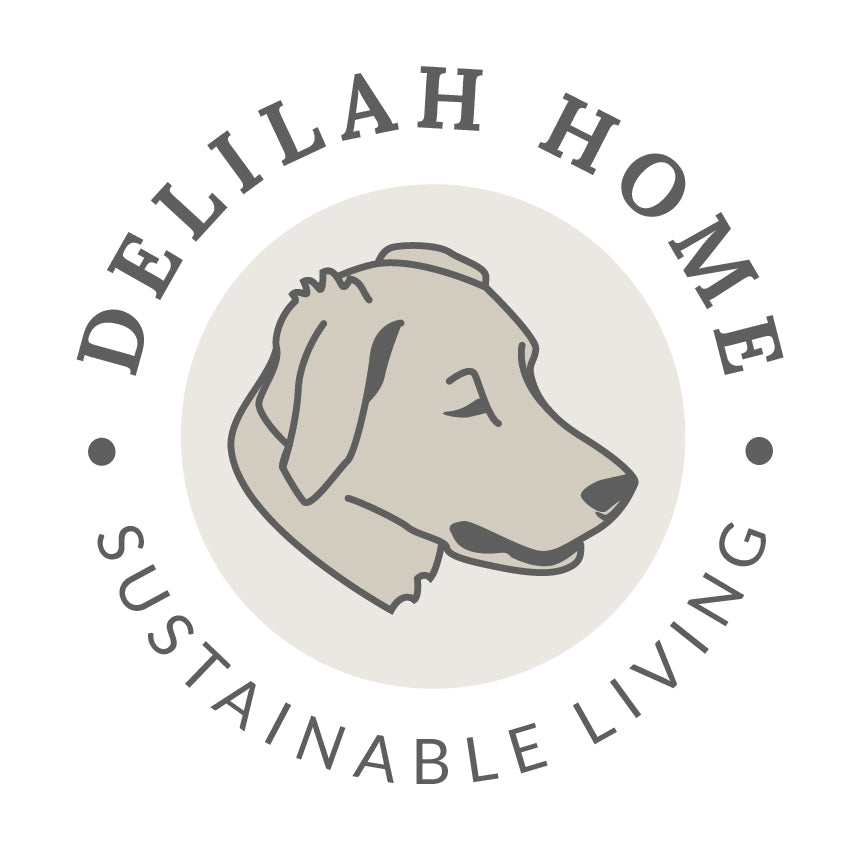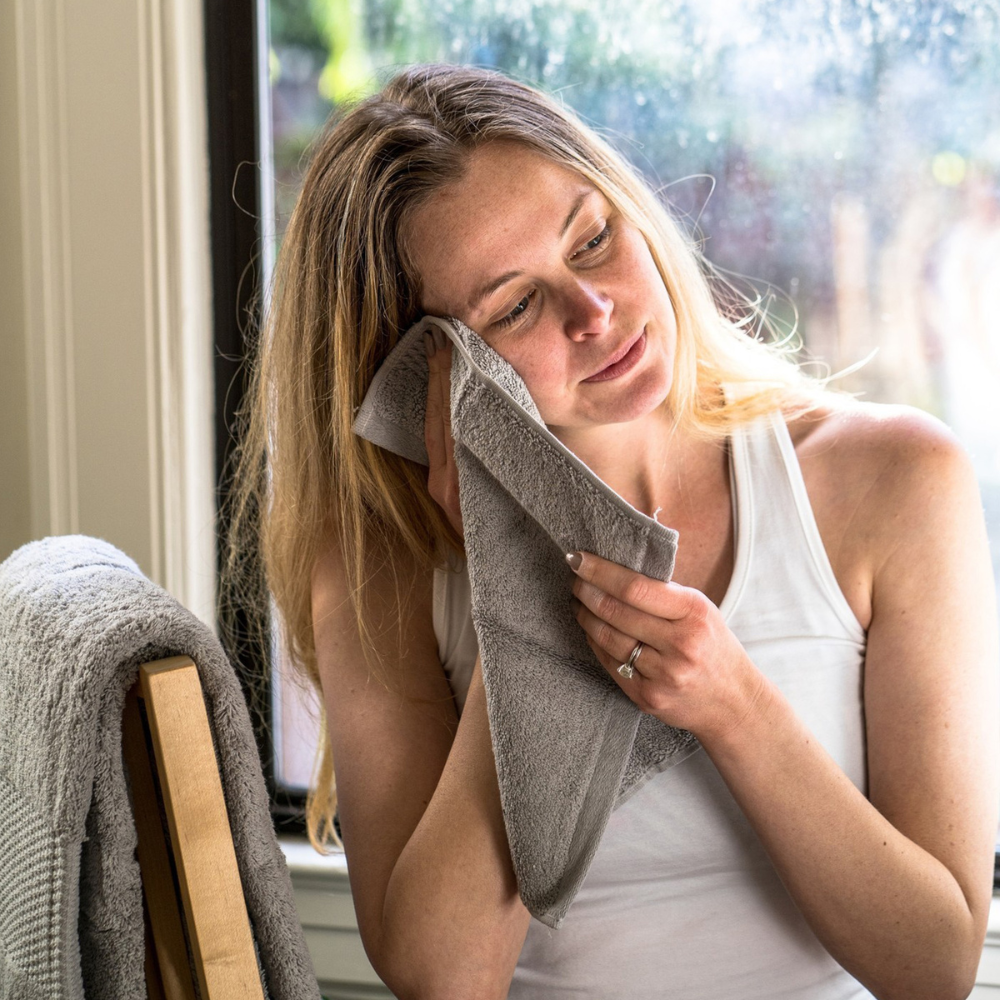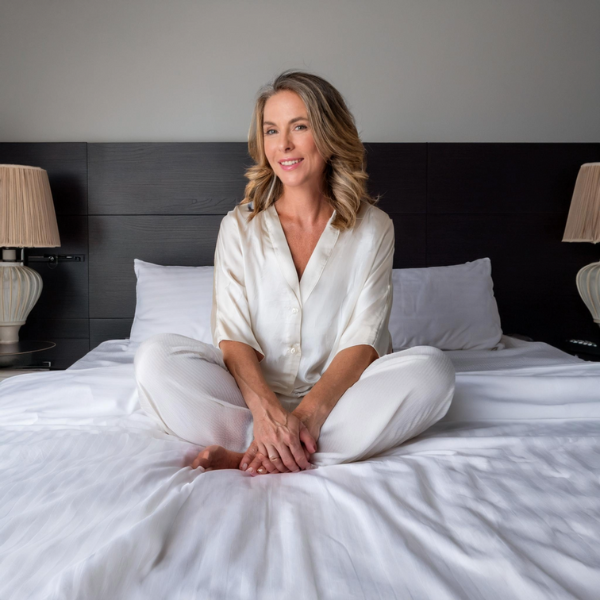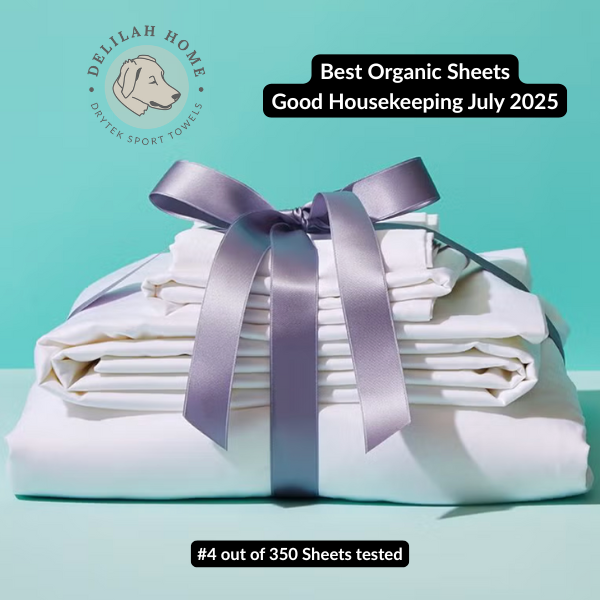By Michael Twer
CEO/Founder, Delilah Home
Former Chairman, Organic Trade Association Fiber Council
By now, most people understand that organic is better when it comes to what we eat. We avoid pesticides and chemicals in our food because what we put in our bodies matters.
But what about what we put on our bodies?
Your skin is your body’s largest organ. Every time you wrap yourself in a towel, slip into bed, or rest your head on a pillow, your skin is in contact with fabric—often for hours at a time. If that fabric is made from non-organic cotton, you’re exposing yourself to harmful chemicals, pesticides, and synthetic residues. That’s why choosing organic cotton for bed sheets, bath towels, and other home textiles isn’t just better—it’s essential.
Check out our Organic Towels ( click here)
The Hidden Dangers of Non-Organic Cotton
You may not realize it, but conventional cotton is one of the dirtiest crops on the planet. It accounts for only 2.5% of the world’s cropland but uses nearly 16% of all insecticides. In the U.S. alone, cotton ranks among the top four crops for pesticide and fertilizer use—behind only corn, soy, and wheat.
Worse yet, many of those pesticides—like glyphosate, diuron, and tribufos—are linked to cancer, respiratory issues, hormone disruption, and skin irritation. These chemicals don’t just vanish after harvest. They can remain in the cotton throughout the production process and into the final product. That means they’re potentially absorbed into your skin every time you use a conventional towel or sleep on conventional sheets.
Organic Cotton Protects the Planet
The damage doesn’t stop with your health. Non-organic cotton is an environmental burden:
-
🌊 Water Waste: It takes over 2,700 liters of water to produce a single conventional t-shirt, and nearly 11,000 liters to make one pair of jeans. Organic cotton, on the other hand, uses significantly less water thanks to healthier soil and rain-fed crops.
-
🌍 Carbon Emissions: For every metric ton of conventional cotton produced, 1.8 metric tons of CO₂ are released into the atmosphere. Organic farming practices help trap carbon in the soil, reducing overall emissions and helping combat climate change.
-
♻️ Chemical Pollution: The synthetic dyes and chemical treatments used in conventional textiles often end up in our waterways, harming marine life and entering the food chain.
Check out our Bedding (click here)
Healthier Homes for Sensitive Skin and Lungs
Over 65 million Americans suffer from asthma or allergies—and the chemicals in non-organic cotton can be serious triggers. Even if no one in your household has a diagnosed condition, prolonged exposure to chemical residues can cause skin irritation or respiratory issues over time—especially in children or older adults.
Organic cotton, certified by the Global Organic Textile Standard (GOTS), ensures that what touches your skin is free from allergens, toxins, and harmful residues. It's the better choice for anyone with sensitivities—and simply the smarter choice for everyone else.
A Better Choice for Workers and Farmers
Organic isn’t just about sustainability—it’s also about ethics. Organic cotton is typically grown under fair trade conditions, ensuring that the farmers and producers are paid fair wages, work in safe conditions, and aren’t exposed to toxic chemicals in the field.
Choosing organic cotton means choosing respect—for people, animals, and the planet.
Why Delilah Home Exists
At Delilah Home, we’re committed to creating luxurious home textiles that are as safe and sustainable as they are soft and beautiful.
All of our products—from our award-winning organic cotton bed sheets and bath towels to our 100% hemp bedding—are:
-
✅ GOTS Certified Organic
-
✅ Made in family-run factories in Portugal
-
✅ Vegan Certified by Vegan.org
-
✅ Free from toxic dyes, synthetic softeners, and harmful residues
We believe in transparency, responsibility, and comfort you can feel good about. We’ve spent years building a brand that does the right thing—even when it’s harder or more expensive—because that’s the only way real change happens.
Once you experience the plush feel and peace of mind that comes from using genuinely organic towels and sheets, you’ll never want to go back.
Our Inspiration: Delilah’s Story: Watch Here
Delilah Home is named after our golden retriever puppy who survived a harrowing 62-day journey alone in the North Carolina mountains. Her story of resilience, hope, and the kindness of strangers inspired our mission: to create a company rooted in sustainability, compassion, and community.
To learn more about Delilah’s incredible story and our commitment to giving back, [click here].
Make the Switch. Feel the Difference.
If you're ready to revamp your linen closet with safe, sustainable, and seriously soft products, explore our full range at DelilahHome.com.
Because what touches your skin should be just as clean and natural as what goes into your body.




Leave a comment
This site is protected by hCaptcha and the hCaptcha Privacy Policy and Terms of Service apply.